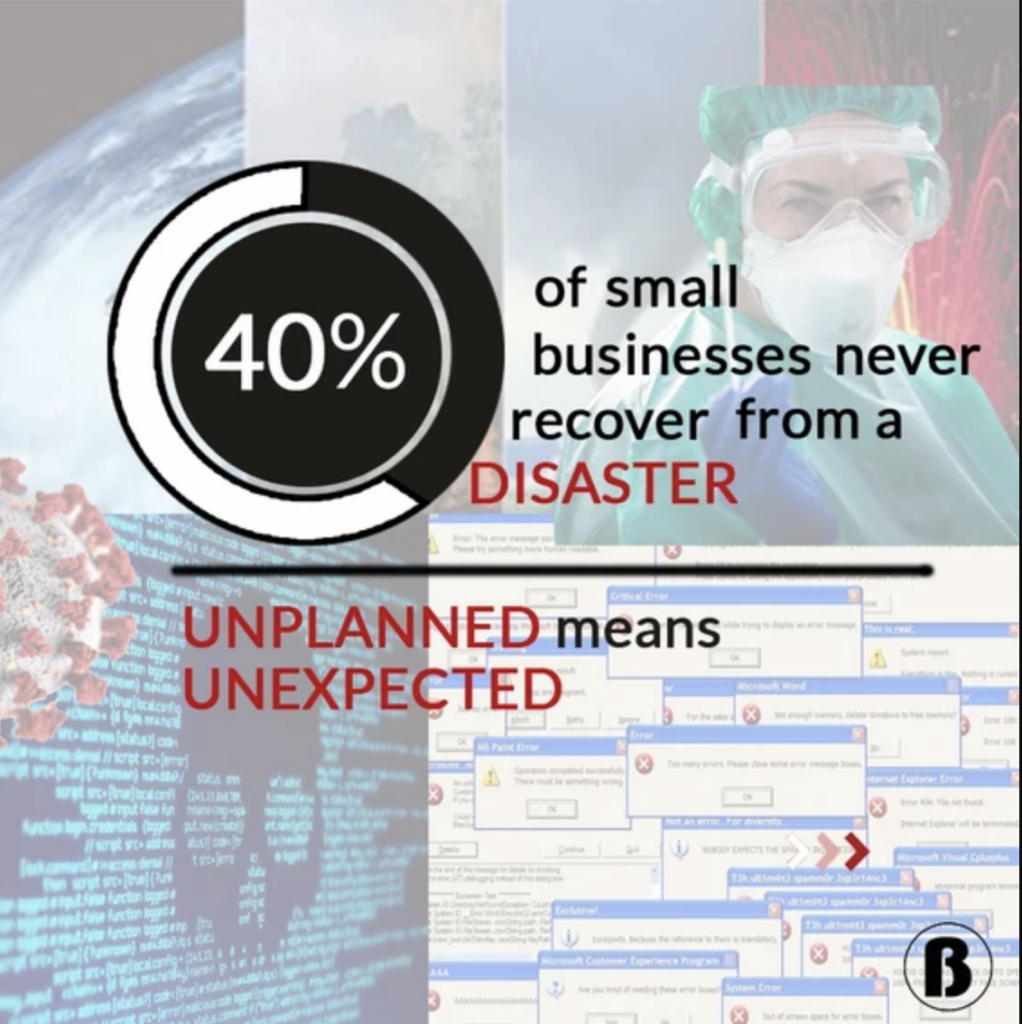Businesses often underestimate the need of a business continuity plan. No one ever notices its absence – until it’s too late. By then, the damage is already done. Any unplanned interruption of normal business processes can create immense hurdles and costly setbacks. Operations suffer. Revenue may suffer even more.
Unplanned interruptions take many forms. It can be something as simple as a power outage, It could be a major hurricane,a data breach, even loss of data. Ultimately, a disaster can be anything that disrupts normal business operations. Regardless of the cause, unplanned means unexpected.
In this article, we will discuss:
What constitutes business continuity planning
The top 5 reasons your organization needs a business continuity plan
The importance of business continuity planning beyond simply restoring operations
How to get started building a business continuity plan
What is a Business Continuity Plan?
A business continuity plan is a document/ procedure that gives an organization the ability to maintain essential processes before, during, and after a disaster. Its a detailed plan on what to do if there’s a disaster, a pandemic, a or emergency that can keep your business going, and make sure you can work from wherever.
With a business continuity plan in place, you position yourself to minimize the impact and damage of an unexpected event, and make sure you are able to continue delivering your products and/or services to your clients and consumers.
The Importance of a Business Continuity Plan
A business continuity plan positions your organization to survive serious disruption. It eliminates confusion common to every disaster, providing a clear blueprint for what everyone should do.
More importantly, your business continuity plan supports:
Communication between employees and customers
Workflow operations essential to business activity
Customer service response, especially if you are a service provider
Business security, keeping your data and information secured wherever you and your team find yourself working
The flow of information and documents
3 Reasons to have a Plan:

Reason #1: Disaster recovery
As noted in the previous section, disaster recovery plays a significant role in the restoration of business operations.
Disasters happen. Their unexpected nature is what makes them so devastating. Being prepared may not prevent the disaster, but it does mitigate the impact on your business.
Research states that 40 percent of small businesses never recover from a disaster.1 Larger organizations take major hits.
Often when we think of disasters, we think of major events like earthquakes, floods, and natural disasters. These, however, aren’t the only causes of downtime. Data deletion due to human error, poor security habits of users, and incompetent employees or accidents also rank among the prime reasons for IT downtime.
Contact us here to recording of webinar about business continuity and disaster relief

Reason #2: Data shows backups are not enough
Most companies deploy some form of data backup. Having data backed up does you no good if you cannot access it, such as could occur in a power outage or need to leave an office site even on a temporary basis.
Accessing data in the event of a disaster can prove a problem. After all, having a backup is different from accessing it.
It’s a question business continuity planning asks: How will you access that data in the event of an outage?
Reason #3 : Competitive edge
You have a big advantage over your competitors if you can restore normal operations while they are still trying to figure it out. Getting your network back up and running fast, restoring access to your business data and documents, and reconnecting your employees to communicate with each other and support your customers allows for your organization to stand-out as a leader and one that can be trusted and relied upon
Business continuity makes this possible by establishing actions that must be taken to ensure operations remain active, no matter the nature of the disaster. For example:
If the power goes out without certainty of when it will be restored, can you switch to a server or network located in a functioning data center?
If you experience a server failure, do you have a backup server (or virtual server) ready to go?
If your office location becomes inaccessible for any reason, can your employees work remotely?

Barlop is here to Help Plan a Successful Recovery
We’ll detail your applications, systems and network; provide training; and conduct periodic testing in a simulated environment. In addition to consulting services like these, our IT services can remove the burden of monitoring and managing your data infrastructure to help give you increased reliability, reduced risk and a comprehensive business continuity plan in the event of a disaster.




